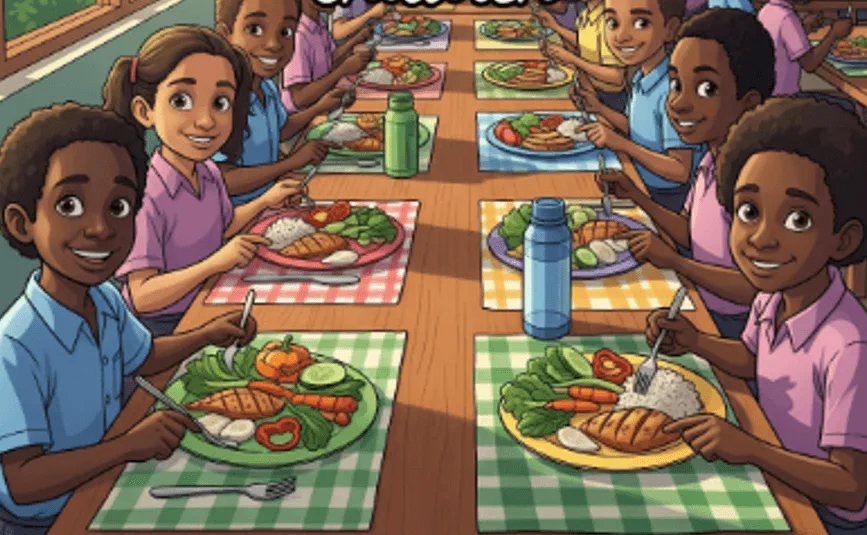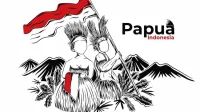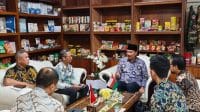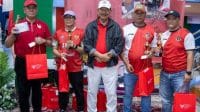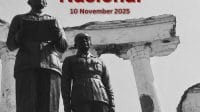Kabaroman.com – Papua, a region known for its rich cultural diversity and stunning natural landscapes, is now at the forefront of a major national initiative to combat a quiet, but pervasive, health crisis: malnutrition. The Indonesian government’s Free Nutritious Meals Program (Makan Bergizi Gratis, or MBG), a flagship initiative, is being rapidly rolled out across the country, with significant focus on the Papuan provinces. This program is a critical effort to address the “triple burden” of malnutrition—undernutrition, micronutrient deficiencies, and rising rates of overweight and obesity—that disproportionately affects vulnerable populations, particularly in remote areas.
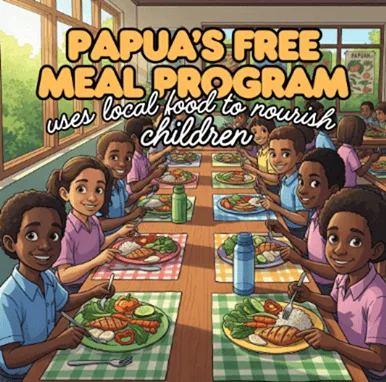
Addressing a Root Problem
For years, limited access to nutritious food, geographic isolation, and socioeconomic disparities have contributed to higher-than-average stunting rates in Papua. Stunting, a form of chronic malnutrition, has long-term, irreversible consequences on a child’s cognitive and physical development, ultimately impacting their future productivity and health. The MBG program directly targets this issue by providing daily, balanced meals to those who need it most. The program’s beneficiaries include schoolchildren, toddlers, pregnant women, and breastfeeding mothers, creating a foundation for healthier generations.
A Community-Driven Approach
A key component of the program’s success in Papua is its community-centered implementation. Instead of a top-down approach, the National Nutrition Agency (Badan Gizi Nasional, BGN) is working with local governments and communities to establish “Nutrition Fulfillment Service Units” (SPPG). These units serve as community kitchens, preparing and distributing meals to schools and health centers. In cities like Jayapura, this model is already showing impressive results, with local volunteers, many of whom are mothers and youth, involved in the process. This involvement not only ensures the meals are culturally appropriate and locally sourced but also provides families with income, skills, and a sense of ownership in the program.
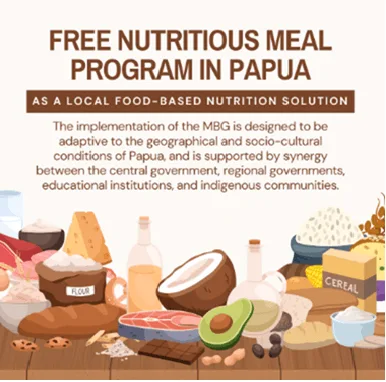
Leveraging Local Resources
A major challenge for the MBG program in Papua is its budget, as the cost of imported commodities can be high. To overcome this, the provincial government is encouraging the use of local, nutritious ingredients. Regencies are mapping out their local food sources, such as seafood in Sarmi and tubers in other districts, to create cost-effective and culturally appealing menus. For example, sago, a major crop in the region, is being explored as a staple, with creative preparations being developed to appeal to children. This strategy not only makes the program more sustainable but also stimulates the local agricultural economy, benefiting farmers and suppliers.
A Collaborative Effort for a Healthier Future
The Free Nutritious Meals Program is not operating in isolation. It is part of a broader, multi-sectoral effort to improve nutrition in Papua. Local governments are complementing the program with initiatives like supplementary food for toddlers and free health checks. Furthermore, international partners, including UNICEF and the World Food Programme (WFP), are providing crucial technical assistance in areas such as menu optimization, nutrition education, and supply chain management. The collaborative nature of this initiative, bringing together government agencies, local communities, and international partners, is a promising step towards building a healthier and more prosperous future for the people of Papua.
The Road Ahead
While significant progress is being made, the challenge remains to scale up the program to reach all of the region’s diverse and remote communities. However, the strong support from indigenous leaders and the commitment from all levels of government signal a powerful shift in prioritizing public health and human capital development. The Free Nutritious Meals Program is more than just a feeding scheme; it is a long-term investment in the well-being of a new generation, ensuring that every child in Papua has the chance to grow healthy, strong, and reach their full potential. (Ibnu Made Amin, Indonesian Diaspora)
